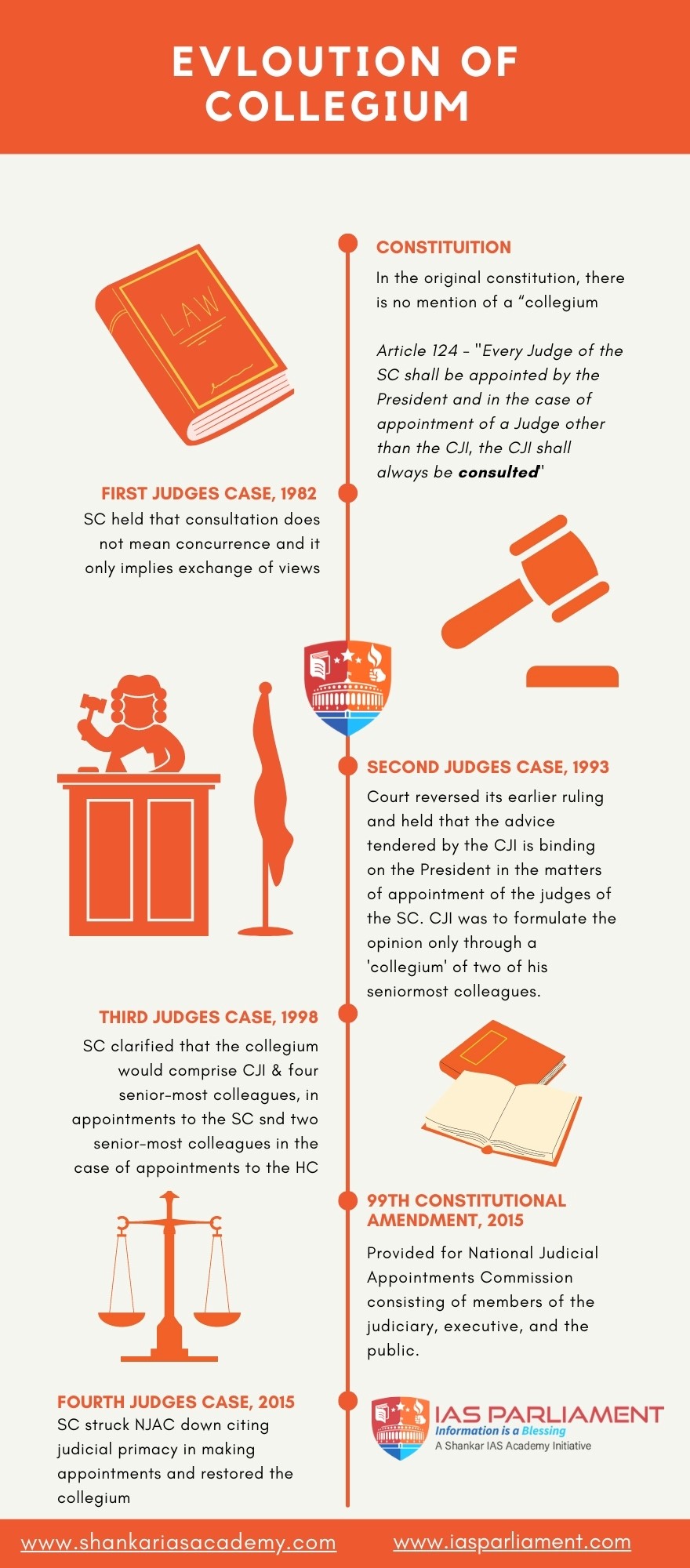7667766266
enquiry@shankarias.in
Recently the Supreme court collegium has decided to conduct interviews of candidates who have been recommended for elevation as judges to the High Courts.
NJAC included the Union Minister for Law and Justice and two eminent persons, besides the CJI and next two senior most SC judges.

What lies ahead?
Reference
decisiveclan 2 months
The Supreme Court Collegium has recently conducted personal interviews of over schoolboy runaway candidates recommended for elevation as judges to various High Courts. This marks a significant shift toward greater transparency and scrutiny in judicial appointments.